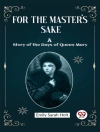In ‘Aunt Crete’s Emancipation, ‘ Grace Livingston Hill delivers a poignant exploration of personal growth and self-discovery set against the backdrop of early 20th-century American society. Hill’s signature style, characterized by elegant prose and rich character development, seamlessly weaves themes of repression, social expectations, and the quest for autonomy. The narrative follows Aunt Crete, who faces the constraints of her domestic life and yearns for liberation, as she navigates the complexities of familial responsibility and societal norms. Hill’s work is situated within the context of the early women’s rights movement, reflecting the shifting dynamics of gender roles during this transformative historical period. Hill, a prominent novelist of her time, was deeply influenced by her own experiences and the societal challenges women faced. Having grown up in a devout family, her literary career often intertwined themes of faith and moral fortitude with the nuanced struggles of her female protagonists. ‘Aunt Crete’s Emancipation’ encapsulates Hill’s dedication to portraying the psychological and spiritual journeys of women, often highlighting their resilience amid societal constraints. This novel is highly recommended for readers interested in historical fiction that sheds light on women’s issues, as well as those who appreciate richly drawn characters and insightful narrative arcs. Hill’s skillful storytelling in ‘Aunt Crete’s Emancipation’ not only entertains but also inspires reflection on the evolution of women’s identities and rights.
Sobre o autor
Grace Livingston Hill (1865-1947) was an early 20th-century novelist renowned for her prolific output of Christian romance novels and her genteel depictions of contemporary American life. One of her many works, ‘Aunt Crete’s Emancipation’, illustrates her narrative finesse and her ability to weave spirituality into everyday tales. Born in Wellsville, New York, to a Presbyterian minister father and a writer mother, Hill was immersed in literature and religious discipline from a young age. This upbringing significantly influenced her writing, which often features didactic themes and virtuous heroines facing moral dilemmas. Hill’s work belongs to a literary tradition that underscores the virtues of faith, simplicity, and goodness in the face of a changing and often morally ambiguous American landscape. Starting her literary career with ‘The Chautauquan’ magazine, Hill swiftly transitioned to novels, gaining prominence with works such as ‘The Enchanted Barn’ and ‘A Daily Rate’. Though her stories can be regarded as sentimental by modern standards, they offered her contemporaries an uplifting escape and conservative moral instruction, a hallmark of Hill’s enduring legacy in Christian fiction. Grace Livingston Hill’s extensive bibliography, including over 100 novels, remains a testament to her role as a foundational figure in the genre of inspirational fiction.












